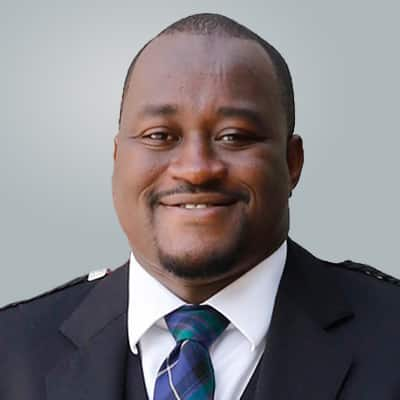Customer Logins
Obtain the data you need to make the most informed decisions by accessing our extensive portfolio of information, analytics, and expertise. Sign in to the product or service center of your choice.
Customer Logins
BLOG
Nov 15, 2017
Zimbabwe military takeover
The Zimbabwean military overnight (14-15 November) took control of state broadcaster Zimbabwe Broadcasting Corporation (ZBC) and mounted roadblocks and patrols around key government offices, courts, and the parliament building in Harare, and at the presidential palace.
In a televised speech following the takeover, Major-General Susibiso Moyo of the Zimbabwe Defence Forces (ZDF) announced that 93-year-old President Robert Mugabe and his family are "safe and sound and their security is guaranteed", although local media sources report that they are under house arrest. Gen Moyo claimed that the military was "in charge" for the purpose of "dealing" with "criminals" who had surrounded President Mugabe but denied a coup had taken place.
Military intervention follows dismissal of vice-president
Vice-President Emmerson Mnangagwa was expelled from the ruling Zimbabwe African National Union - Patriotic Front (ZANU-PF) party on 8 November after a meeting of its politburo acting on recommendations from the party's provincial leaders. Mnangagwa's dismissal as vice-president happened following events at a political rally on 5 November in which the first lady, Grace Mugabe, publicly accused him of dividing the ZANU-PF by attempting to overthrow the president with the support of the army. Local media on 10 November reported threats by Mnangagwa to lead a popular revolt against the Mugabe faction and the ZANU-PF in response to his dismissal.
On 13 November, Zimbabwean army chief Constantine Chiwenga, accompanied by 90 senior army officers, issued a strong statement warning ZANU-PF to immediately end its purge of senior party members who were part of the liberation movement. Chiwenga also warned that infighting within ZANU-PF was denigrating the military and causing alarm in its rank and file, and that the military would intervene if it came to protecting the revolution, indirectly referencing Grace Mugabe and the 'G40' faction of the party.
Army likely to negotiate transitional power transfer
The military, using the leverage gained from the insurrection, is likely to broker a power-sharing deal and transitional agreement between President Mugabe and former vice-president Mnangagwa. Mnangagwa is likely to lead a transitional government, which likely will be composed of his allies, including former finance minister Patrick Chinamasa. There is a possibility of also appointing those previously expelled from ZANU-PF by Mugabe, such as former vice-president Joyce Mujuru, who leads the Zimbabwe People First party, in order to consolidate Mnangagwa's support within ZANU-PF. A reinstatement of Chinamasa would indicate a more pro-business shift in policy direction, with areas particularly likely to be affected including economic proposals aimed at Zimbabwe's re-engagement with the international community. Chinamasa's proposed reforms and austerity measures directed at economic recovery and rapprochement with international financial institutions, including the International Monetary Fund and the World Bank, were stalled in the October 2017 cabinet reshuffle which saw G40-ally Ignatius Chombo, the less-experienced former home affairs minister, becoming the finance minister. Media reports on 15 November indicate that the military has detained Chombo and other top ministers affiliated to Grace Mugabe's faction.
Violent confrontations between rival factions in ZANU-PF and the military likely
The leader of the ZANU-PF Youth League, Kudzai Chipanga, said on 14 November that the organisation would defend the president and the country's constitution. A key Mugabe ally, Higher Education Minister Jonathan Moyo, issued an official statement on the same day calling Chiwenga's actions reprehensible and treasonable, aimed at advancing factional politics and furthering his personal ambitions. Violent confrontations between rival ZANU-PF factions using crude implements such as machetes, stones, and sticks and the military using water cannons and tear gas will pose risks of injury to passers-by, damage to commercial property on the high streets in the Central Business District, and political party offices and government buildings, and disruption to road networks in the main cities lasting up to three days. Confrontations are likely to take place in the main cities such as Harare or Bulawayo and in key provinces such as the Masvingo and the Midlands.
Outlook and implications
Any speech by President Mugabe in the coming days explaining how he will engage with the military towards the formation of a transitional government will be crucial in indicating the political direction of the country and signal escalation of violence or relative stability. Statements from the opposition Movement for Democratic Change - Tsvangirai (MDC-T) party and the Zimbabwean Democratic Party welcoming moves towards a transitional authority would reduce the risk of an intervention by a standby force of the regional Southern African Development Community (SADC). The military and the war veterans' association, which publicly back Mnangagwa, are likely to push for Mnangagwa's confirmation as ZANU-PF chairman, paving the way for him to eventually take over his former role as the country's vice-president and to succeed President Mugabe. A commitment from the military that next month's extraordinary ZANU-PF congress and the early 2018 general election will go ahead as planned will be a risk-positive indicator of the turn of events.
Theo Acheampong, Senior Analyst Country Risk - Sub-Saharan Africa at IHS Markit
Posted 15 November 2017
{"items" : [
{"name":"share","enabled":true,"desc":"<strong>Share</strong>","mobdesc":"Share","options":[ {"name":"facebook","url":"https://www.facebook.com/sharer.php?u=http%3a%2f%2fwww.spglobal.com%2fmarketintelligence%2fen%2fmi%2fresearch-analysis%2fzimbabwe-military-takeover.html","enabled":true},{"name":"twitter","url":"https://twitter.com/intent/tweet?url=http%3a%2f%2fwww.spglobal.com%2fmarketintelligence%2fen%2fmi%2fresearch-analysis%2fzimbabwe-military-takeover.html&text=Zimbabwe+military+takeover","enabled":true},{"name":"linkedin","url":"https://www.linkedin.com/sharing/share-offsite/?url=http%3a%2f%2fwww.spglobal.com%2fmarketintelligence%2fen%2fmi%2fresearch-analysis%2fzimbabwe-military-takeover.html","enabled":true},{"name":"email","url":"?subject=Zimbabwe military takeover&body=http%3a%2f%2fwww.spglobal.com%2fmarketintelligence%2fen%2fmi%2fresearch-analysis%2fzimbabwe-military-takeover.html","enabled":true},{"name":"whatsapp","url":"https://api.whatsapp.com/send?text=Zimbabwe+military+takeover http%3a%2f%2fwww.spglobal.com%2fmarketintelligence%2fen%2fmi%2fresearch-analysis%2fzimbabwe-military-takeover.html","enabled":true}]}, {"name":"rtt","enabled":true,"mobdesc":"Top"}
]}




